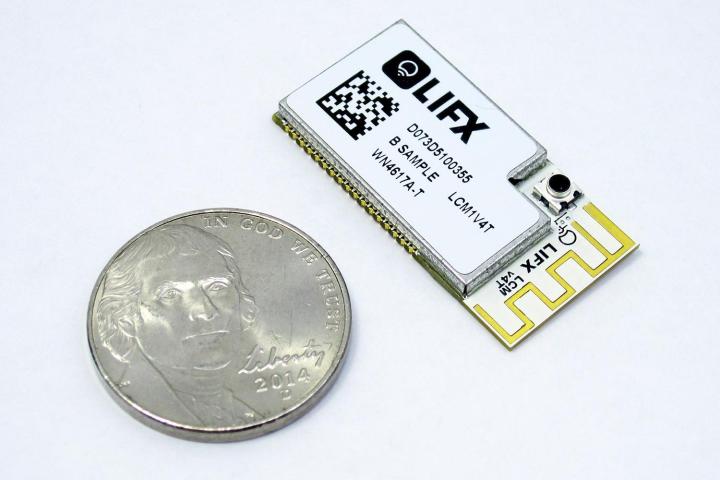
But as more and more smart devices flood the market, consumers want gadgets that are less specialized and instead sync with everything, including the kitchen sink.
Before, this meant that a company that specialized in small appliances might not be able to get everything it wanted out of its new smart device, because coordinating with a separate company to incorporate lighting technology proved too difficult. Qualcomm and LIFX are trying to change that. The companies got together to build a new turnkey smart lighting platform, enabling companies or individuals — anyone interested in connected lighting — to put the technology in their devices more easily.
There are two parts to the Wi-Fi-based solution. The first is the hardware: The Lighting Connectivity Module (LCM) is small and self-contained. Havells Sylvania, a company that’s been in the lighting business for over a century, integrated the technology to turn its ordinary light bulbs into smart ones. Other manufacturers can use a standard LED bulb design instead of reinventing it on their own.
Open-source software allows the light bulbs to operate with other devices on the AllJoyn network. Leveraging the AllSeen Alliance’s Lighting Service Framework (LSF), a company such as D-Link, known for routers more than lighting, can ensure all its new smart devices are compatible with the smart bulbs, no matter who’s putting them out.
“There are no other devices that you have in every room in your home,” says Amir Panush, Qualcomm’s Director Product Management, of lights. That ubiquity makes them attractive to many in the smart home market, but the lighting industry has long been heavily regulated, says Panush. That shouldn’t bar anyone from harnessing this technology, he adds. “Our goal is to allow anybody access, whether it’s a large company or a small company or an individual tinkering in their garage.”
That’s one less thing to hold back amateur inventors trying to Kickstart their inventions. Maybe it’s no coincidence that light bulbs are already associated with bright ideas.
Editors' Recommendations
- Daisy is an installation and repair company designed for your smart home
- I checked out Govee’s new AI smart lights and now I want them everywhere
- Samsung SmartThings learns a bunch of useful new tricks at CES 2024
- The best smart light bulbs
- How to reset Nanoleaf Essentials Smart Bulbs


